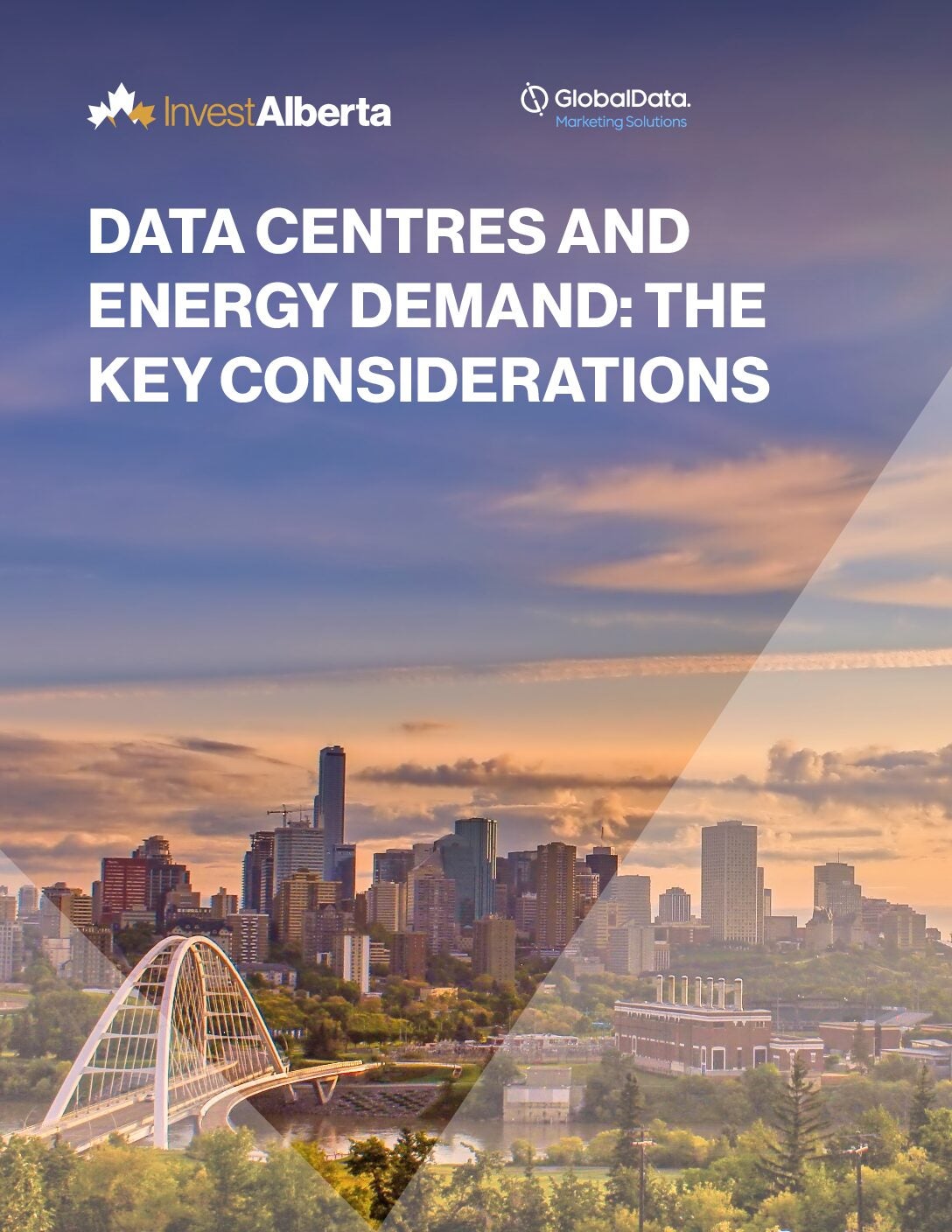
With robust growth predicted for the global data centres market, the location is a key factor in determining success – and Alberta has much to offer, according to a new report.
Titled Data Centres and Energy Demand: The Key Considerations, the report by Invest Alberta identifies the essential requirements of new data centre sites, including energy grid reliability and a supportive regulatory framework. The report also recognises artificial intelligence (AI) as a driver of demand for data centre capacity.
Other critical requirements also revealed in the report include the positioning of a data centre in a cool climate, as lower outside temperatures can reduce the need for costly climate control systems.
Data centres requirements: energy, water, land space, and a mild climate
Data centres have high energy demands, particularly those specialising in supporting AI technologies. According to the International Energy Agency, the global electricity demand from data centres has grown by 12% per year since 2017 and in 2024 accounted for 1.5% of global consumption1. Many expect energy demand will rise further as data centre volumes increase.
Data centre facilities also need sufficient space to accommodate huge servers, networking equipment and environmental control systems. The heat generated by the large servers must be kept under control to avoid damage or fire risk, which often requires further electricity for cooling, as well as water. The report reveals the percentage of data centre power demand allocated to cooling systems, which can be reduced by operating in a cooler climate.
For these reasons, operators looking to set up a data centre project require a site with a large amount of land, with access to energy and an abundance of water. The report demonstrates how these advantages are readily available in Alberta.
Overcoming obstacles to data centre construction
Planning and regulatory challenges, limited power supply and environmental concerns are common hurdles to the construction of data centres. Alberta has a supportive legislative framework and a low corporate tax rate, along with other advantages that are relevant to overcoming these obstacles.
In terms of power, Alberta’s long-established oil and gas industry means it benefits from existing energy infrastructure, carbon-based and renewable energy sources, and provisions for offsetting carbon emissions. The province plans to add 5,000MW to its grid capacity by 2030. The special report delves deeper into the ways in which Alberta fulfils the needs of data centre operators.
According to the 2025 GlobalData report, Evolution of the Global Data Center and Hosting Services Market: Market Opportunity Forecasts to 2028, data centre service providers are increasingly looking to expand data facilities in cities. Three of the reasons behind this trend are the availability of land, lower costs and improved infrastructure, specifically fibre optic networks. These are all factors where Alberta has advantages in cities such as Calgary and Edmonton.
Clusters of data centres are developing in Alberta, with Microsoft and Amazon among the companies making the most of Alberta’s favourable conditions. In addition, eStruxture is a major Canadian data centre provider that is investing hundreds of millions of dollars to construct one of the province’s largest data centres, scheduled to go live in 2026.
Successful data centres require specific conditions such as power, land, water, a cool climate, and a favourable regulatory environment. Learn more about Alberta’s strengths in data centres and how the province is positioning itself as an optimum location for this vital tech infrastructure.
For insights into the optimum conditions for data centre infrastructure and how Alberta has all the attributes required, download the special report below.
References:
1. https://www.iea.org/reports/energy-and-ai/executive-summary



